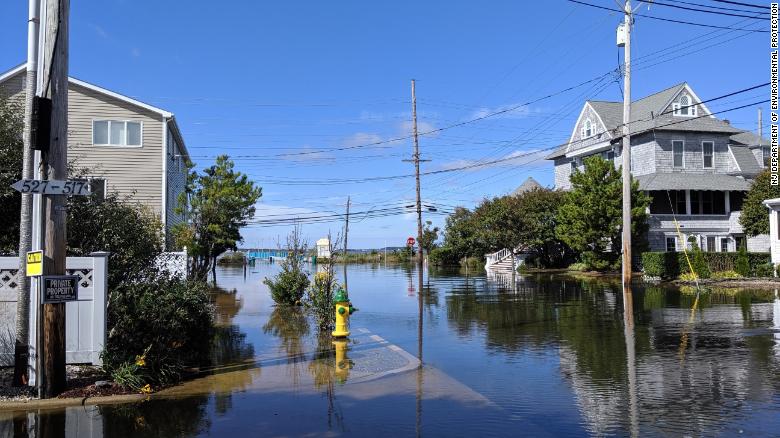An executive order signed this week by Gov. Phil Murphy will make New Jersey's climate change regulations among the toughest in the nation.
The order, which will require that rising sea levels and other effects of climate change be considered during the permitting process for buildings and infrastructure, comes as President Donald Trump's administration is continuing its rollback of federal environmental protections.
The order also sets up requirements for the monitoring and reduction of greenhouse gases statewide.
"Our climate is already changing," Catherine McCabe, commissioner of New Jersey's Department of Environmental Protection, told CNN on Thursday. "We don't have any more time to wait for a federal solution."
The order met pushback from New Jersey Republicans.
State Sen. Steven Oroho called the permitting requirements "another impossible hoop to jump through."
"There's no type of development that will escape Governor Murphy's ability to withhold permits under opaque 'climate change considerations,'" Oroho said in a statement. "He could use that language to block virtually any infrastructure improvement, home construction or commercial development."
The details of what would be required in the permitting process is still a work in progress.
McCabe told CNN that the rules won't be finalized for another two years as the state government seeks comment from various constituencies. She said that discussions with various stakeholders statewide were expected to begin before the end of February.
Michael Egenton, the New Jersey Chamber of Commerce's executive vice president for government relations, said his organization planned to be involved in the process as a stakeholder.
"After Superstorm Sandy, we have to think smarter and more strategically about where we're going to build," Egenton told CNN. "The devil's in the details -- we're open to the process."
Coastal resiliency has been a priority for New Jersey residents since 2012's Sandy killed a dozen people, destroyed more than 300,000 homes and caused massive coastal flooding.
But William Sweet, an oceanographer with the National Oceanic and Atmospheric Administration, told CNN that tidal flooding, unrelated to major storm events, is a growing problem for New Jersey and the East Coast generally.
"There's an increased frequency of lesser events that are really starting to stack up," Sweet said. "It's becoming disruptive. The toll is starting to show."
"Sea levels are rising. Communities are flooding more often," he said. "That's an unbiased observation. What's expected this century is not a repeat of last."
The level of ocean rise is trending particularly fast on the Eastern Seaboard, Sweet said. In New Jersey, sea levels are likely to rise between 2 and 4 feet in the next 80 years, he said.
Even at the low end of that range, Sweet said, "that's almost twice what was experienced in the last century in a place like Atlantic City."
Murphy announced the executive order on the same day as his so-called energy master plan, which calls for the state's energy production to be fully carbon-neutral by 2050.
